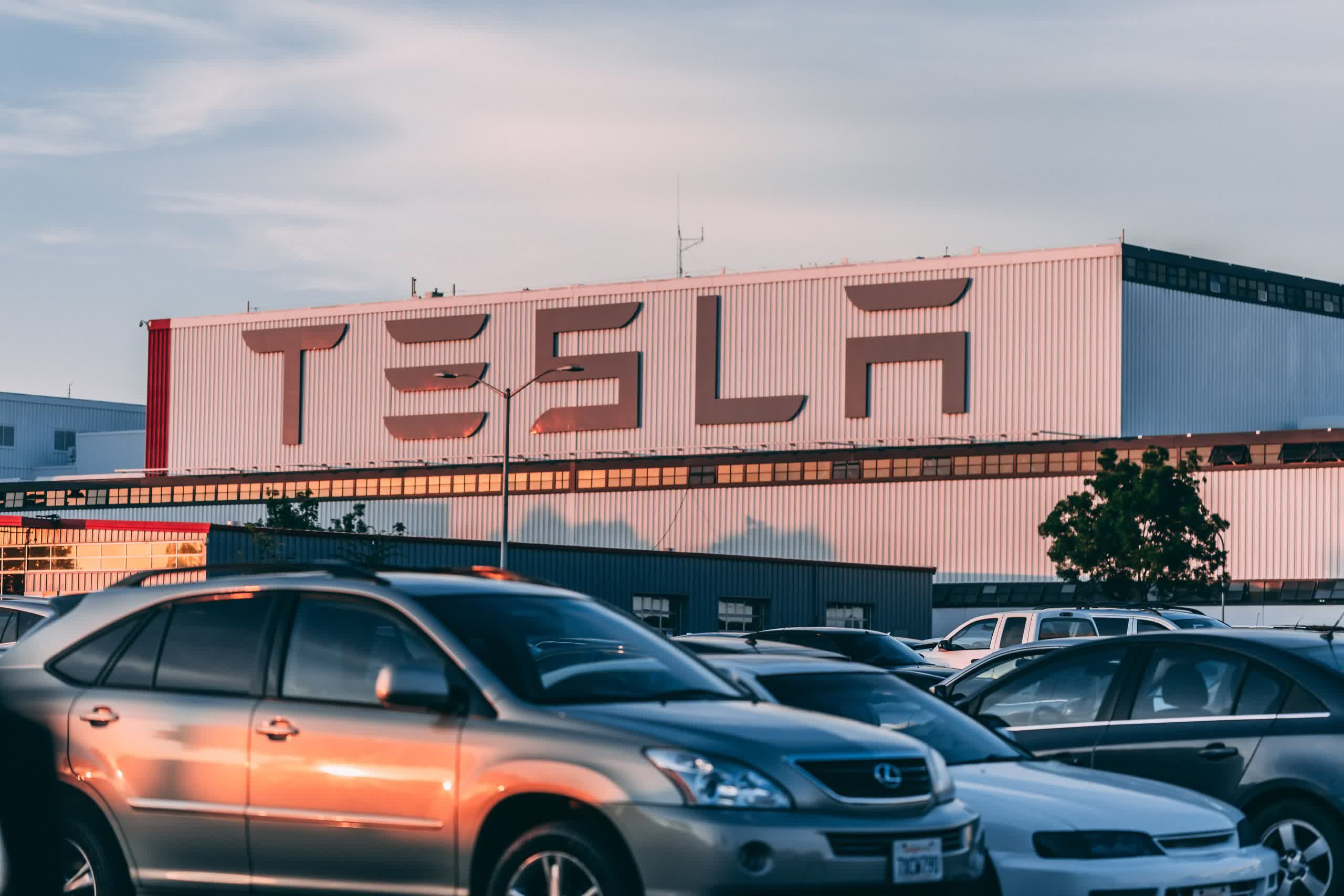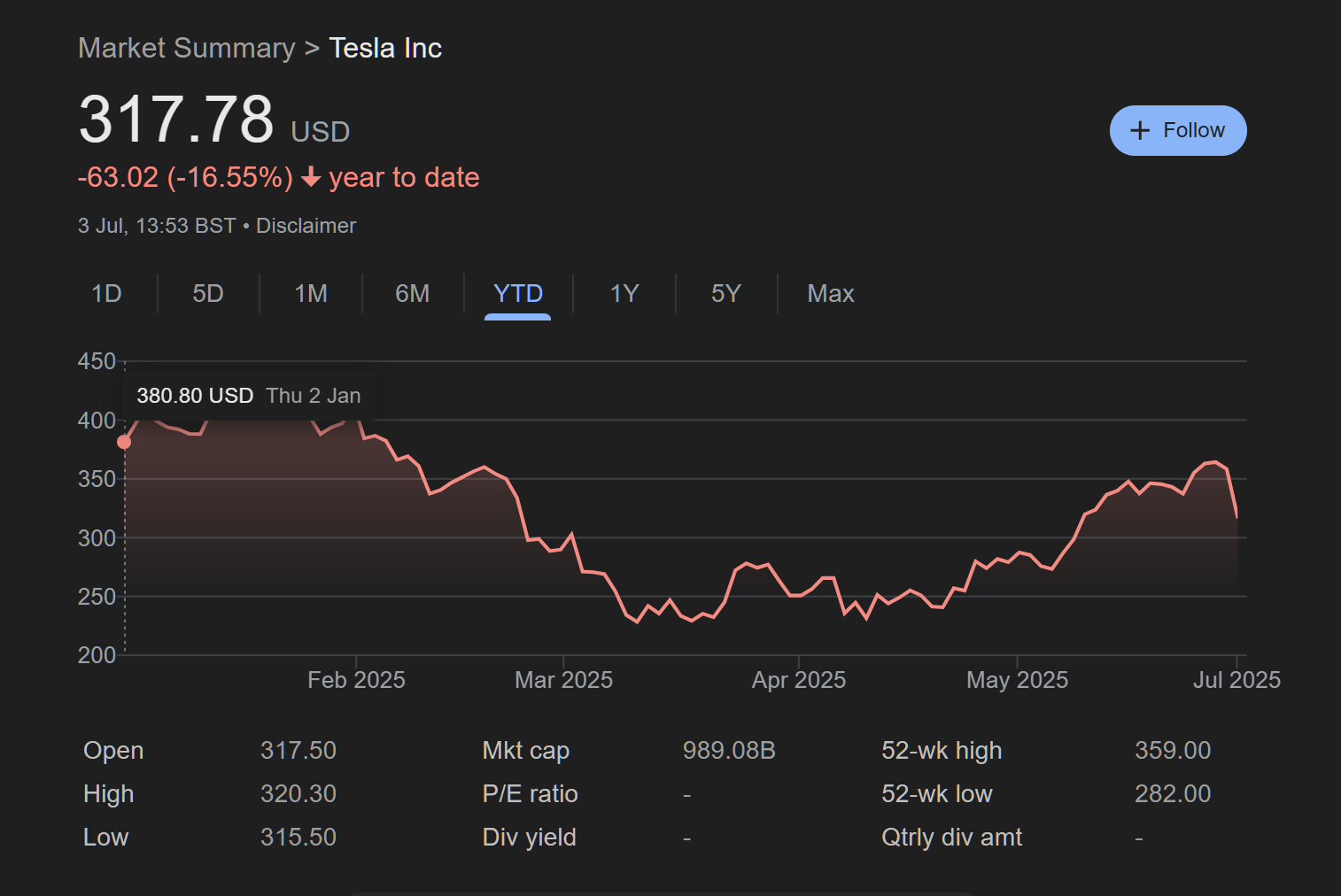What just happened? Tesla's struggles are showing no signs of improving. The EV maker just reported a drop in vehicle deliveries for the second quarter in a row, and it was even worse than what most analysts were expecting. It comes as the company struggles to rid itself of a negative image stemming from CEO Elon Musk and his actions.
Tesla delivered 384,122 vehicles in the second quarter of 2025, marking a 13.5% decline compared to the 443,956 units a year ago. Analysts had, on average, expected deliveries to be around 394,378 vehicles, though some estimates were as low as 360,080 units – a few analysts saw the results as a success.
Tesla announced its 2Q delivery numbers this morning which came in at 384k vehicles well above Street whisper numbers of ~365k vehicles, which was better than feared as the company saw success with its Model Y refresh cycle in the quarter. China rebound. Big step forward 🔥🏆🐂
– Dan Ives (@DivesTech) July 2, 2025
Another statistic is that almost all of the deliveries, 97.3 percent of them, were for Tesla's Model 3 and Model Y, its most popular vehicles. The company refreshed the Model Y this year, but that resulted in some people delaying purchases as they waited for the new version.
Tesla's shares stood at $436 on January 20, the day Trump was inaugurated. As of today, they are $317 – a 27.2% decline.
Tesla's popularity has taken a fall this year, mostly due to Musk's (previously) close relationship with Donald Trump. Sales in Europe were down 50% in April, and there have been several protests against the firm, including a dealership in Rome being set on fire, destroying 17 vehicles. An anonymous communiqué blamed "Musk's fascist project."
Ironically, Musk's very public falling out with Trump hurt Tesla even more. The president threatened to terminate Musk's governmental subsidies and contracts in June, wiping $152 billion off Tesla's valuation.
Musk backed down in that fight, but the pair were at it again this week. In addition to a veiled threat about deporting South African-born Musk, who is a naturalized US citizen, Trump suggested that budget-cutting organization Doge, which Musk led before leaving the role, could look at the government subsidies Musk's companies receive. Once again, Tesla's shares took a dive, falling 5%.
It's not all Musk's fault, though. Tesla is now dealing with increased competition from domestic automakers and Chinese giants, especially BYD.
Musk has repeatedly said that areas beyond consumer EVs will be critical for Tesla's future success. In 2024, he claimned its Optimus robot will drive the company's valuation to $25 trillion. He previously said the robot was Tesla's most important product in development, potentially bigger than its vehicle business.
Oh nooooo
– TexasTSLA (@TexasTSLA) June 23, 2025
Uh oh this is gonna go viral 😭
🙈🙊 https://t.co/NMbVt2GAMt pic.twitter.com/YdrGBTJ6FM
There's also the robotaxi business. It recently launched in Austin, though the autonomous cars do have safety monitors in the passenger seat, a contrast to Musk's previous promise that they would launch "unsupervised, no one in the car."

